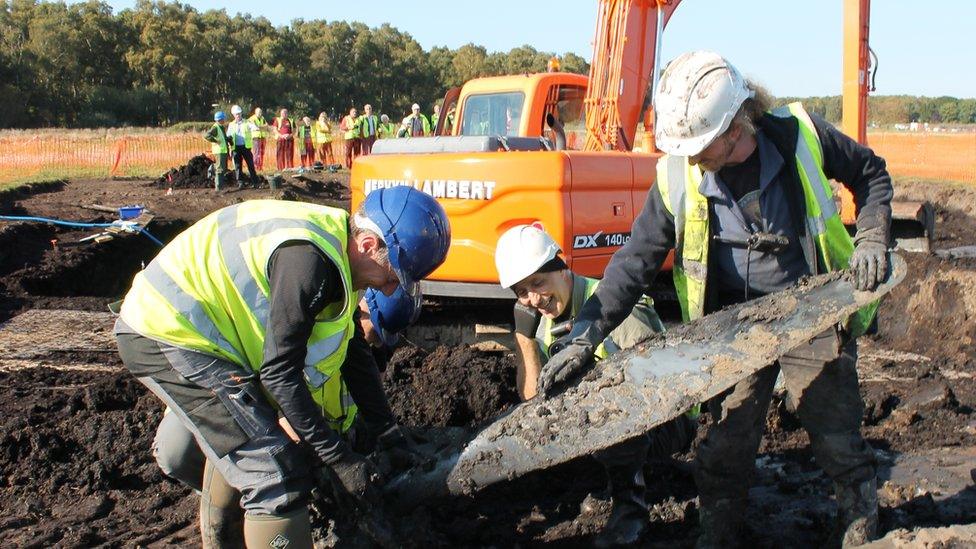Roman Caistor: Veterans help uncover new Iron Age evidence
- Published
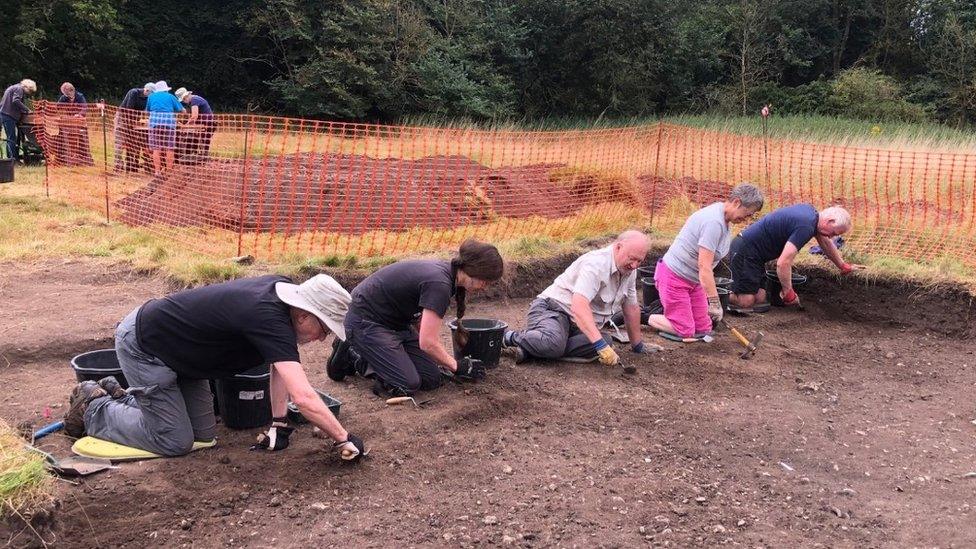
Caistor St Edmunds is famous for its walled Roman town and every summer a mix of locals and archaeologists excavate it
Military veterans have joined a community dig inspired by a therapy programme that helps injured and sick former service personnel.
The Roman settlement at Caistor, Norfolk, is excavated every summer by a mix of locals and archaeologists.
This year seven veterans are taking part after hearing about a therapy project called Operation Nightingale, external.
Caistor Roman Project director Will Bowden said: "It is wonderful to have the input of the veterans."
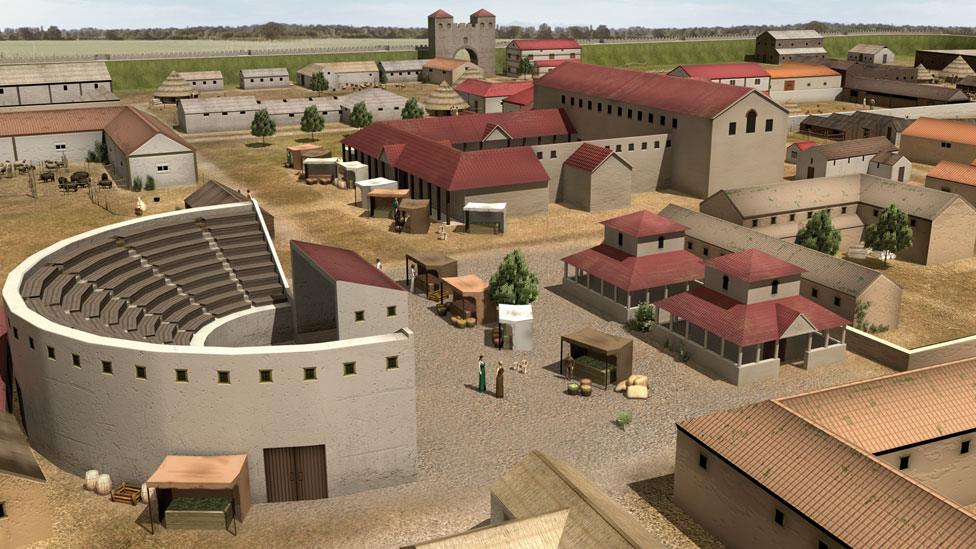
Venta Icenorum - as the Romans called it - had running water, baths, a town hall and a forum and was enclosed in walls in the 3rd Century
Former Royal Engineer Chris Ellis said he really enjoyed taking part.
"It's something I normally wouldn't have thought about doing, but I'm glad I did," he said.
"It helps me because I'm used to a work ethic of order and procedure, which this organised dig has in abundance - the team help us to fit in well."
The Ministry of Defence programme was co-founded by archaeologist Richard Osgood and has been running since 2011.
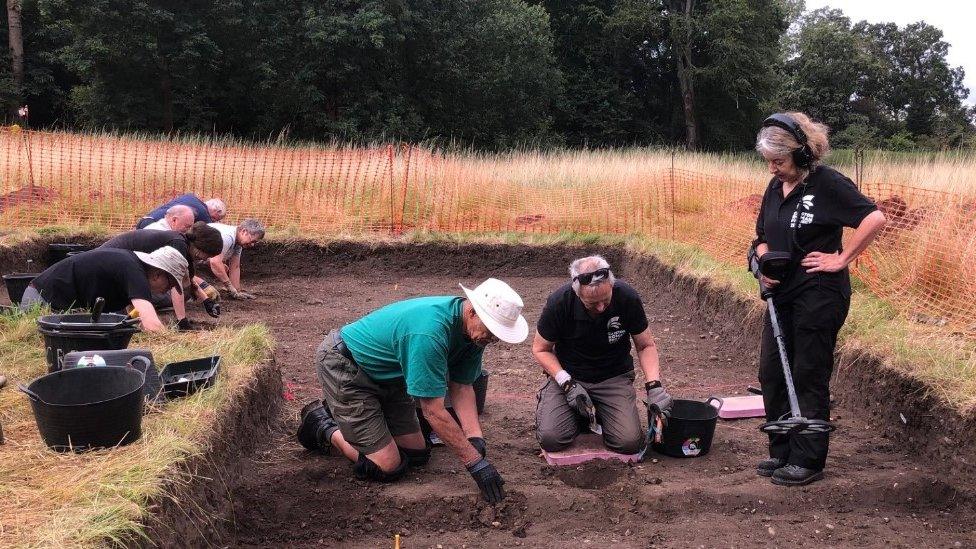
This summer's excavation is being undertaken by members of Caistor Roman Project ,supported by Norvic Archaeology
While the veterans were not part of MOD initiative, Mr Osgood offered "advice and help in developing a programme of recruiting and working with military veterans or personnel", said Caistor's community co-ordinator Caroline Lowton.
"All our veterans were aware of the good work of Operation Nightingale."
For some, this "gave them the incentive to seek" out the dig, while the Loddon branch of the Royal British Legion and military breakfast clubs helped with recruitment.
Ms Lowton said: "Many of these veterans have suffered from PTSD, depression, anxiety, and isolation, and they found working outside in archaeological settings to be very therapeutic."
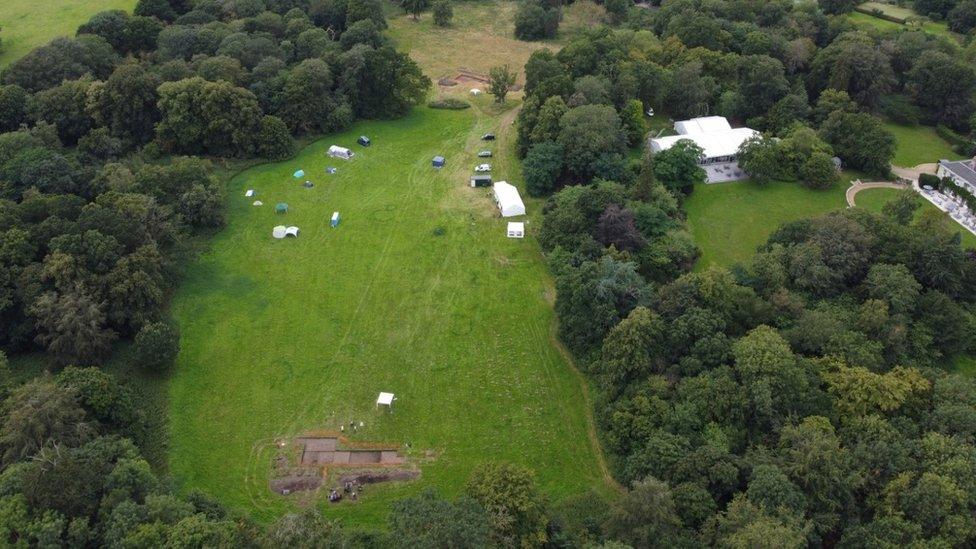
The excavation will last until Friday and is examining an area which was last excavated in the 1920s
The settlement was the largest Roman town in East Anglia. This summer's excavation has already uncovered new evidence of Iron Age activity.
Prof Bowden, a Roman archaeology specialist from Nottingham University, said: "We can provide a calm and enjoyable working environment, while those who have been in the services have an abundance of practical skills that are highly relevant when running an excavation."

Follow East of England news on Facebook, external, Instagram, external and Twitter, external. Got a story? Email eastofenglandnews@bbc.co.uk, external or WhatsApp 0800 169 1830
Related topics
- Published20 August 2023
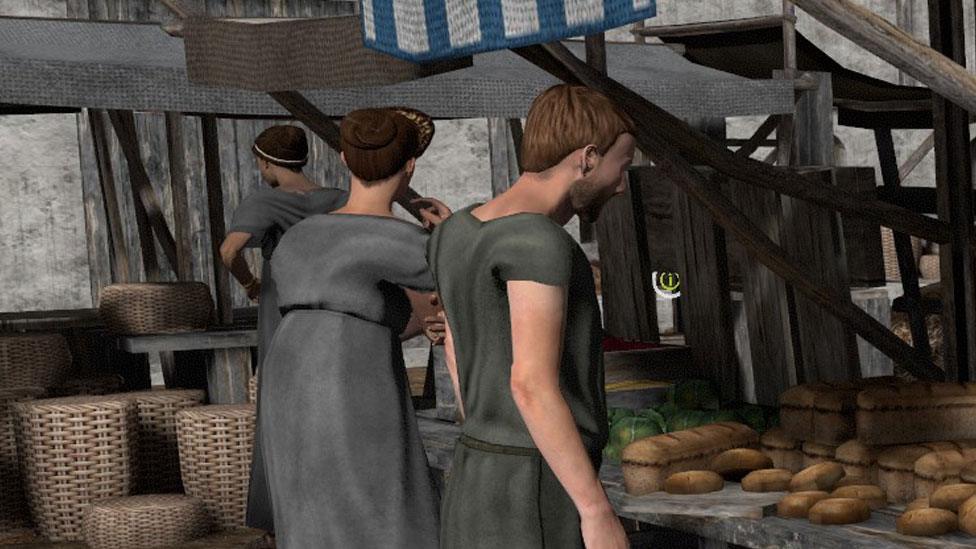
- Published30 August 2022
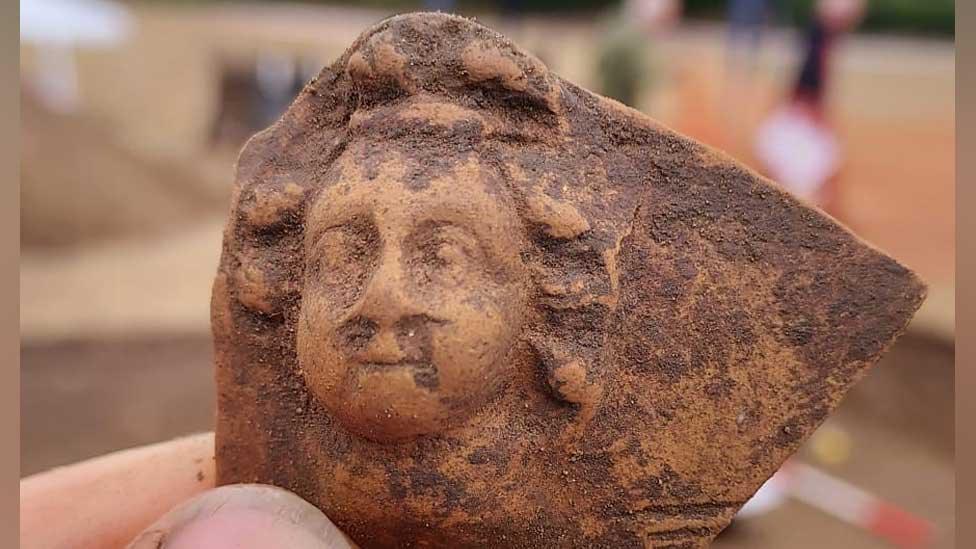
- Published6 March 2022
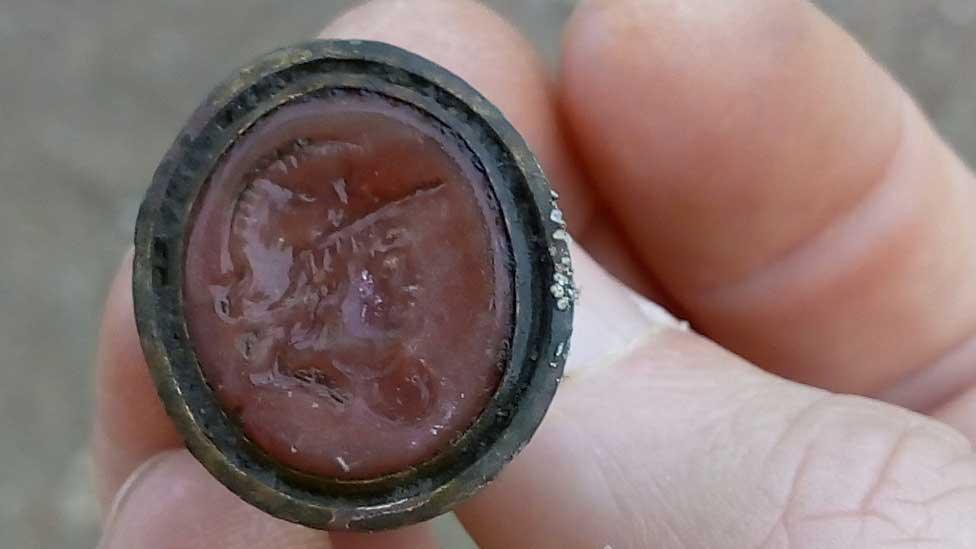
- Published13 September 2020
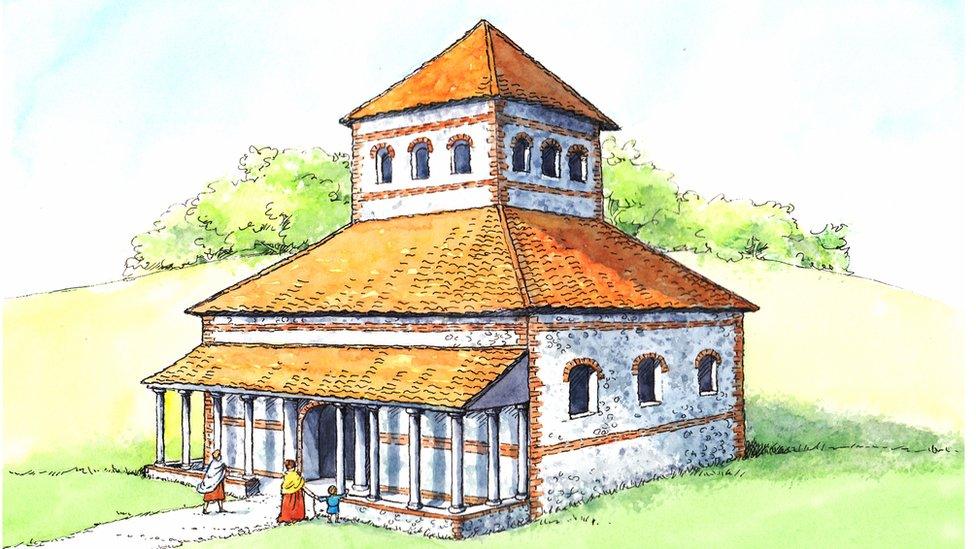
- Published28 March 2016
